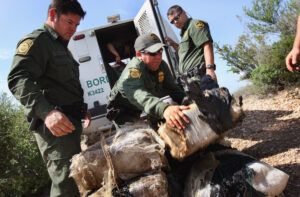WOLA Associate for Mexico and Central America, Maureen Meyer, will present her new report "At a Crossroads: Drug Trafficking, Violence and the Mexican State." Also presenting is Ana Paula Hernández, Deputy Director of the Tlachinollan Human Rights Center. She will focus on the impact of drug production and militarized counter-drug strategies on respect for human rights and local communities.
The GW Latin American and Hemispheric Studies Program
and the Washington Office on Latin America (WOLA)
are pleased to invite you to a seminar
“At a Crossroads: The United States and the Mexican Drug Trade”
with
Ana Paula Hernández,
Deputy Director of the Tlachinollan Human Rights Center,
based in Guerrero, Mexico
and
Maureen Meyer,
WOLA Associate for Mexico and Central America
on
Tuesday, December 4
9-10:30 am
The Linder Family Commons
1957 E Street, N.W. Room 602
The $500 million dollar security cooperation package for Mexico currently before the U.S. Congress has renewed attention to Mexico’s status as the primary transit country for cocaine consumed in the United States, to the U.S. role as the world’s largest consumer of illicit drugs, and to U.S.-Mexican anti-drug policies. Maureen Meyer, WOLA’s associate for Mexico and Central America, is the author of the newly released briefing paper by WOLA and The Beckley Foundation Drug Policy Programme, "At a Crossroads: Drug Trafficking, Violence and the Mexican State," which will be available at the seminar. She will provide an overview of past and current drug policies in Mexico, the role that the U.S. government has played in shaping these policies — including their militarization — and the need for fundamental reforms to the Mexican police and justice systems. A less visible side of the drug trade in Mexico is its supply of a large share of the heroin, marijuana, and methamphetamines distributed in the United States. Ana Paula Hernández, Deputy Director of the Tlachinollan Human Rights Center, will focus on the impact of drug production and militarized counter-drug strategies on respect for human rights and local communities, particularly in the mountain region of Guerrero, one of the states that produces the most poppy for heroin and opium.
Please RSVP by Friday, November 30 to Kristina Demain, kdemain@wola.org.



